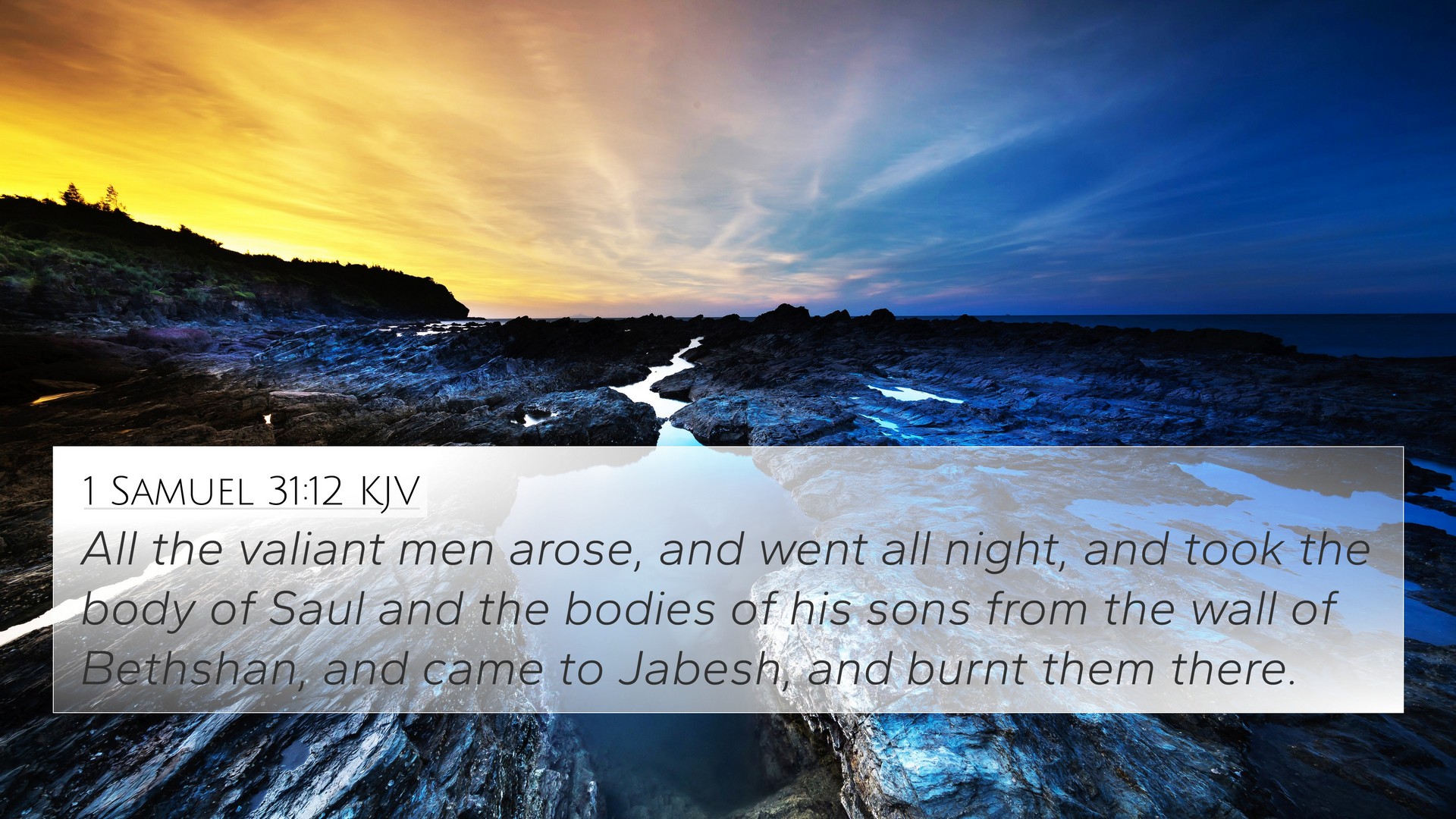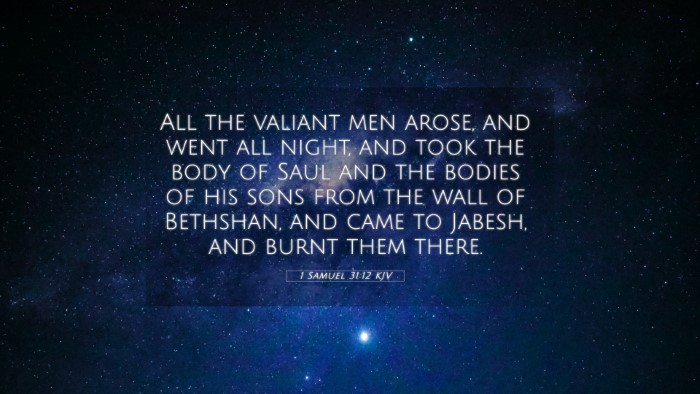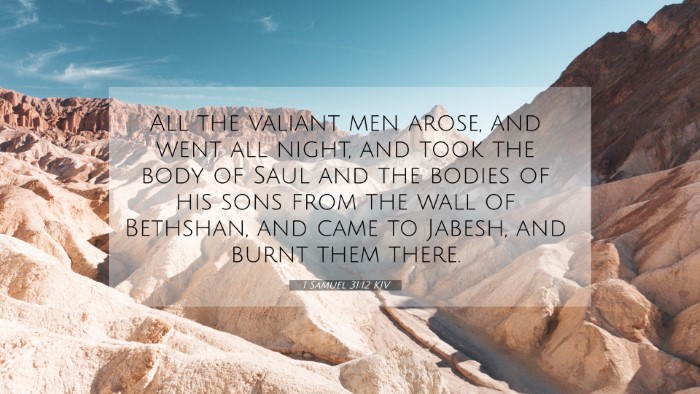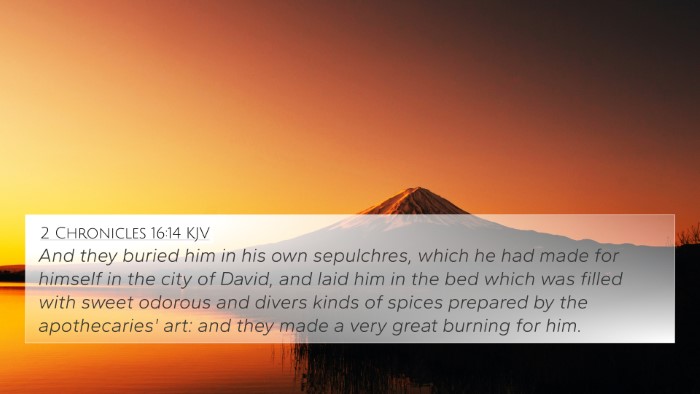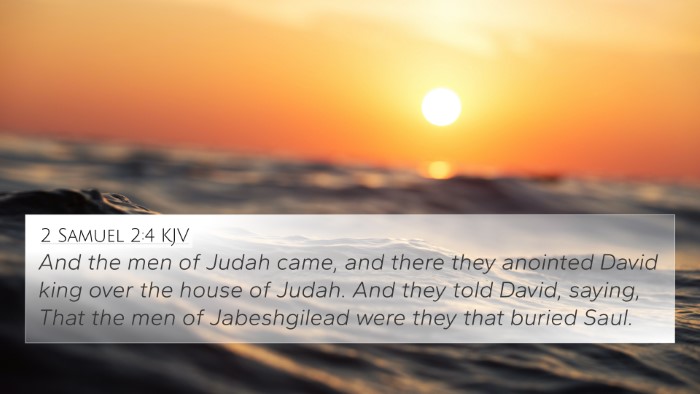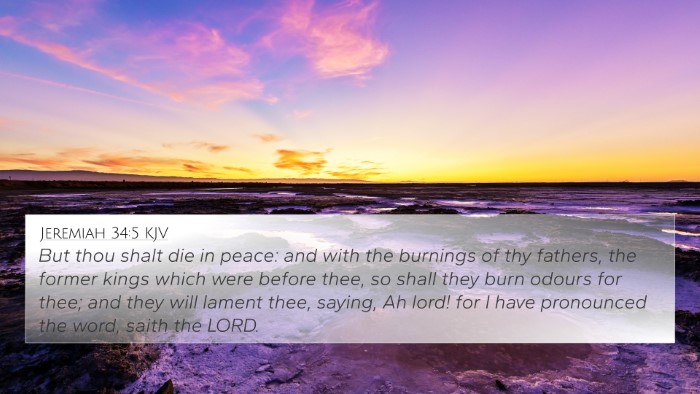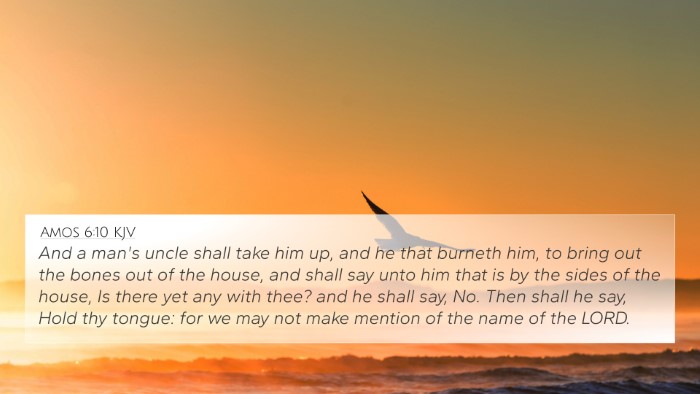Understanding 1 Samuel 31:12
1 Samuel 31:12 states: “All the valiant men rose, and went all night, and took the body of Saul and the bodies of his sons from the wall of Bethshan, and came to Jabesh, and burnt them there.” This verse depicts a moment of significant action following the death of King Saul, emphasizing themes of honor, respect, and communal response in the face of tragedy.
Contextual Background
The book of 1 Samuel concludes with the tragic demise of Saul, the first king of Israel. The narrative outlines the emotional and honorable actions of the valiant men who sought to give proper treatment to the fallen king and his sons.
Interpretation and Meaning
- Honoring the Fallen: This action by the valiant men indicates their loyalty to Saul despite his failures. They honor him after his death, highlighting the importance of respect for authority even in loss. Matthew Henry comments on the depth of loyalty displayed in this act, drawing on cultural practices of honoring the dead.
- Community Response: The act of retrieving the bodies and then burning them signifies a communal response to grief and loss. Adam Clarke elaborates on this, noting the historical significance of such practices as a means of providing closure and honor to the deceased.
- Spiritual Implications: The events following Saul’s death reflect on God’s sovereignty and the effects of disobedience. Albert Barnes suggests that these consequences serve as a solemn reminder of God’s judgment and the importance of following His commands.
- The Nature of Valor: The term "valiant men" signifies courage and dedication, indicating that true valor is not limited to battlefield exploits but encompasses loyalty and the pursuit of honor in all circumstances.
- Transformation from Dishonor to Honor: The retrieval of the bodies from the wall where they were left is particularly meaningful. It signifies a transformation from dishonor to honor, emphasizing the redemptive aspect of how communities can respond in times of crisis.
- Foreshadowing Future Kingship: This scene also foreshadows the establishment of David as Israel’s next king, contrasting Saul's failures with the new hope that David represents, which is highlighted in subsequent texts of the Bible.
Bible Cross-References
This verse has several connections to other scriptures that enrich its understanding:
- 1 Samuel 10:1: Saul’s anointing illustrates God's choice of Saul as king.
- 2 Samuel 1:11-16: David’s lament for Saul underscores the honor for the fallen king.
- 1 Chronicles 10:8-12: Discusses the aftermath of Saul’s death in a similar context.
- Deuteronomy 21:22-23: The laws concerning the treatment of the dead show the importance of honoring the bodies.
- Philippians 2:27: Discusses the themes of loyalty and devotion, resonating with the actions of Saul's men.
- John 15:13: Illustrates greater love through sacrificial acts, which can be related back to the valiant actions of Saul’s men.
- Matthew 5:16: The call to let one's good deeds shine serves as a parallel to the honor sought by the men retrieving Saul’s body.
Application for Today's Believers
As contemporary believers reflect on 1 Samuel 31:12, several applications emerge:
- Honor in Leadership: It calls for modern-day leaders to recognize the impact of their actions and the legacy they leave behind.
- Community Engagement: Encourages individuals to engage with their communities in acts of respect and solidarity during times of loss.
- Redefining Valor: Helps redefine what it means to be valiant by emphasizing character and loyalty over mere physical prowess.
- Redeeming Love: Offers insights into God’s redemptive love even in loss, prompting reflection on how God transforms situations for good.
Conclusion
In summary, 1 Samuel 31:12 paints a poignant picture of loyalty, community response, and the honoring of the fallen. It serves as a reminder of the values we must uphold in our lives as we seek to embody these principles in our relationships and stewardship.
